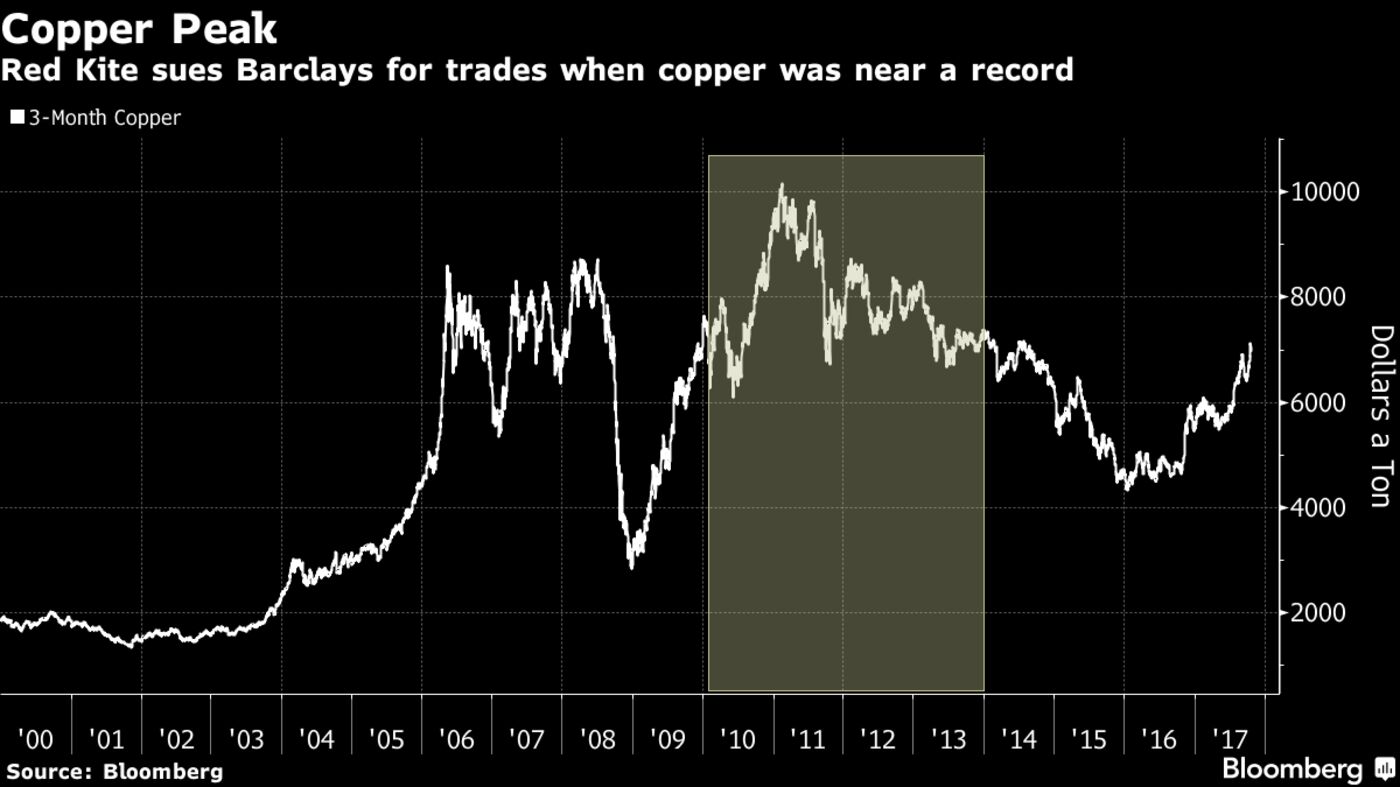Categories:
Base Metals
/
General Market Commentary
Topics:
General Base Metals
/
General Market Commentary
Barclays Sued by Fund for $850 Million in Metal Market Abuse
Red Kite Management Ltd., the world’s largest metals hedge fund, is suing Barclays Plc for alleged market abuse in the copper market that it claims cost the firm at least $850 million between 2010 and 2013.
The case pits a $2 billion hedge fund against a bank that has been hit by a number of scandals in previous years, including large fines for manipulating Libor, the benchmark for interest rates.
Red Kite, whose co-founder is the former treasurer of the U.K. Conservative Party, alleges that Barclays allowed staff to share confidential information about its positions with the bank’s proprietary traders on the floor of the London Metal Exchange, according to court documents filed by the hedge fund in the U.K. High Court.
Barclays traders used the knowledge about Red Kite’s positions to profit by placing opposing trades, the fund said in court documents filed in October 2016, but only recently made public. Red Kite alleges the bank "sought to manipulate the LME by ‘ramping’ prices” to manipulate the closing price, a benchmark widely used by traders.
In a separate document, Barclays denied all the claims, saying that it had not mishandled Red Kite’s confidential information.
Copper Valuations
The legal battle could resonate well beyond the hedge funds and banking community as the allegations center around the valuation of trades in the $150 billion-a-year copper market.
Barclays and Red Kite declined to comment further when contacted by Bloomberg News. A spokeswoman for the LME declined to comment on ongoing legal proceedings, but said the exchange “has strict rules regarding market manipulation and abuse” and “anyone found in breach of LME rules could be subject to disciplinary proceedings.”
Red Kite, founded in 2005 by Michael Farmer and David Lilley, is one of the last surviving hedge funds in commodities after prominent rivals closed over the last decade. The lawsuit covers the metal’s heyday, when China’s economic boom drove copper prices above $10,000 a metric ton in 2011.

In the court documents, Red Kite said Barclays traders in the commodities division, which handled proprietary trading, were able to view open positions from the prime brokerage division, which managed Red Kite’s account.
The proprietary traders knew prime brokerage “had only one client of substantial size” in the non-ferrous metals market and could figure out Red Kite’s positions, the fund alleged.
Details about Red Kite’s trades were circulated within the commodities division in a daily email, and at least one third-party broker working for rival funds was also allowed to attend meetings at the LME where Red Kite’s positions were discussed, the claimants said.
Repeat Bids
According to Red Kite, Barclays took proprietary trading positions opposing those of the fund, and then attempted to manipulate the LME copper market by "repeatedly bidding large sums for copper positions in the moments before the close of ‘kerb’ trading on the LME".